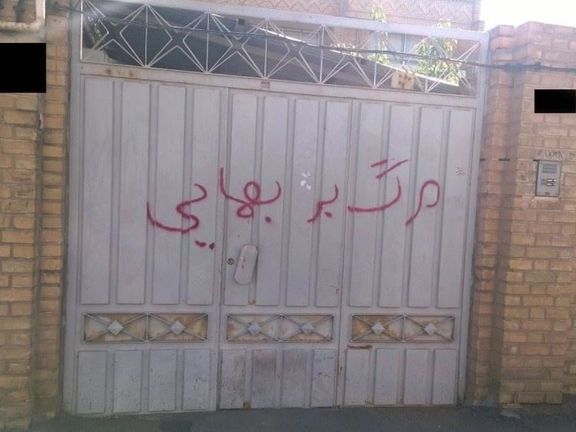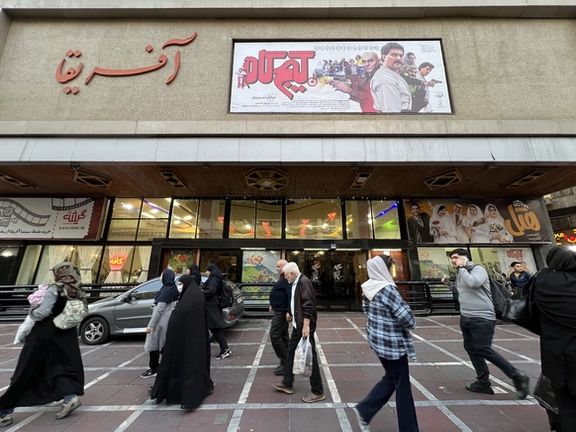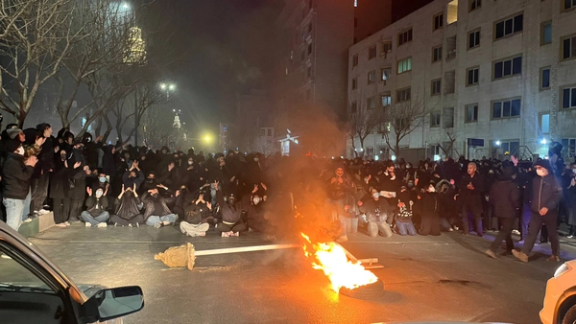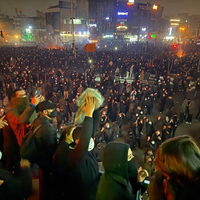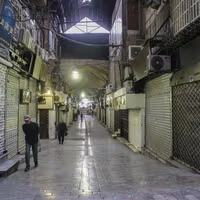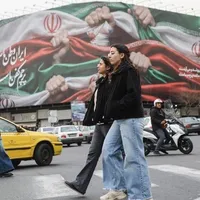“The Baha'i sect has an unbreakable bond with Zionism. Don’t be fooled by their Iranian origins,” Ali Shirazi said in a television program later shared on social media on Tuesday.
“Baha'i and Israel are one and the same, not two separate entities at all.”
The remarks came a day after the Baha’i International Community raised concerns about intensifying crackdown on members of the faith inside Iran, including what it called coordinated operations in at least six provinces.
“At least 22 Bahais had their homes and businesses subjected to invasive searches, threats, and interrogations," the group posted on X Monday. "Agents confiscated personal belongings and electronic devices, sealed workplaces, and arrested or detained individuals in unknown locations.”
'Baseless hate-mongering'
A spokesperson for the Baha'i International Community condemned the anti-Bahai commentary on Iran's state TV, saying they reflect the deep-seated hostility of Iranian authorities.
“When examining the historical backdrop of such hate-mongering, it has always taken different directions in different eras. At times, Baha'is have been labeled spies; when nationalist sentiments were strong, they were called anti-nationalist; elsewhere, anti-religious,” said Vesaq Sanaei, the community’s spokesperson in Sydney, in a phone interview with Iran International on Wednesday.
“Interestingly, the constant shifting of direction, topic, and examples shows there's no foundation beyond hate-mongering—its sole aim is to divide people. This is well-precedented, and unfortunately, it’s being pursued in various forms across multiple platforms,” Sanaei added.
Baha'i activist and filmmaker Sepehr Atefi also responded to the video on Wednesday, calling on Iranians to stand in solidarity with the Baha'i minority.
“Everything points to the Islamic Republic’s serious resolve to destroy Iran’s Baha'i community through repression, imprisonment, and economic pressure, using the same false, outdated accusations that lack any evidence,” Atefi posted on X.
“Today, more than ever, we need the solidarity of the entire Iranian society with Baha'is in Iran,” he added.
Asked whether a commentator’s speech on state television carries the same weight as that of an official, Sanaei said the platform legitimizes such messaging.
“When an official platform is given to someone who, without evidence, reason, or documentation, unleashes such volumes of lies and hate—and you see this at every level, even the highest, where ‘experts’ are invited or introduced to do the same—whether they hold office or not, it’s cause for concern,” he said.
“It justifies and normalizes oppression and suppression, erodes sensitivity to injustice and tyranny, and—worst of all—harms Iran’s social cohesion,” Sanaei added.
Not recognized
Iran does not recognize the Baha'i Faith as an official religion, and its followers have faced persecution and prosecution since 1979. Accusations linking Baha'is to Israel are often used by authorities to portray them as hostile to the state.
The Baha'i Faith’s spiritual and administrative world center is located in Haifa and Acre, Israel, which includes sacred sites such as the Shrine of the Bab.
Iranian Baha'i community has faced systematic repression, arrests, and nearly 1,500 years in combined prison sentences over the past five years, US-based rights group Human Rights Activists News Agency (HRANA) reported on August.
The Baha'i Faith emerged in 19th-century Persia, challenging Islamic orthodoxy with its teachings on universal religion and progressive revelation.
